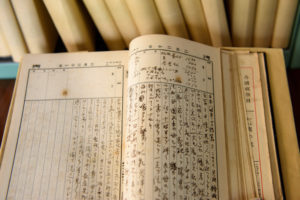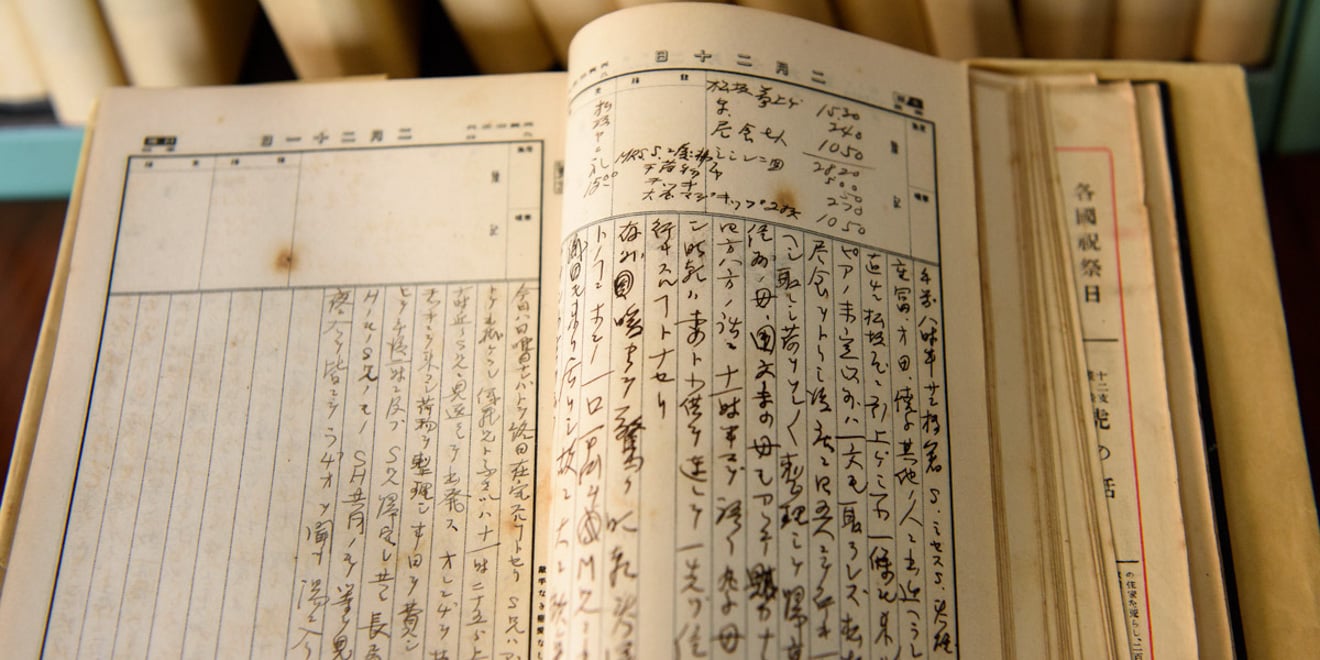
Stanford’s East Asia Library recently received diaries from the early- and mid-20th century written by a Japanese immigrant, Hisao Magario, and his wife, Fusai, as well as their family photos, that historians say shed light on the trans-Pacific relationship of the era.
The diaries and family photos were donated by Magario’s grandson Tsuneo Nakajima, great-granddaughter Miki Nakajima and grandnephew Steven Yoda ’99 M.S. ’00.
According to his relatives, Magario worked as a dishwasher when he first arrived in the United States. He later started his own business selling Japanese souvenirs and other items. Magario lived in Oakland and San Francisco from 1920-26 before returning to Japan, where he died in 1960.
Magario kept detailed accounts of his life from 1920-60, resulting in 40 different volumes. The diaries of his wife Fusai, however, were written in 1972.
“The Magario diaries are rare and valuable on so many levels,” said Associate Professor of History and Director of Stanford’s Center of East Asian Studies, Jun Uchida, to Stanford News. “Rarely do scholars encounter diaries kept by an ordinary man who recorded virtually every day of his extraordinary life that spanned the periods before, during and after World War II.”
One recurring theme of Magario’s journals was the increasing anti-Japanese sentiment around the time of the Immigration Act of 1924. For example, Magario wrote that his landlord raised the rent for his store, which was also later set on fire.
Stories like this, Uchida said, make the journals historically valuable.
“Diaries offer us historians access to the daily lives of ordinary people that usually go undocumented,” Uchida said. “These unedited sentiments and intimate details can offer us new and surprising insights into the past.”
Yoda’s grandfather was Magario’s wife’s brother and helped with Magario’s business until Yoda’s family moved to an internment camp in the 1940s. The two branches of the family reunited in 2013 when Nakajima reached out to Yoda.
Nakajima had been looking for a way to preserve Magario’s diaries, and Yoda suggested that they donate the diaries to Stanford.
“For many of us, the history of how we got to the United States was lost,” Yoda said. “I thought it was lost for me. And I feel really lucky that one of my ancestors had left a written record like this that we can now read.”
Contact Anne-Marie Hwang at amhwang ‘at’ stanford.edu.
